Hair Transplant in Tunisia vs Turkey: The Ultimate Guide to Choosing Your Destination
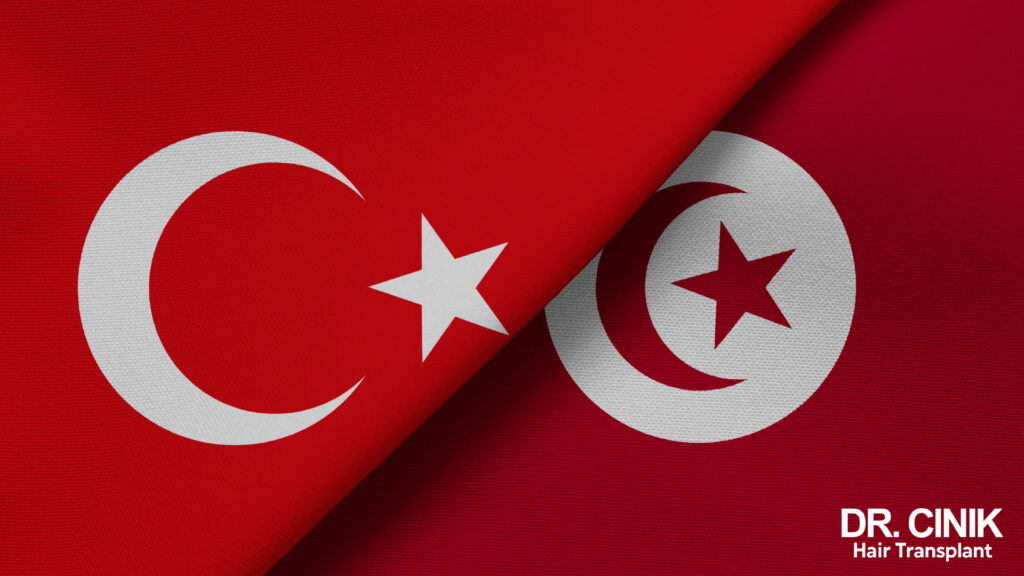
Sommaire
Hair transplants are an effective and lasting solution to androgenetic alopecia. If you are considering this procedure, you have probably noticed that Tunisia and Turkey are among the most popular destinations. And with good reason: both countries offer interesting advantages for patients.
However, beyond this similarity, Tunisia and Turkey each have their own specific characteristics. Whether in terms of cost, techniques used, surgeons’ skills, or quality of treatment, there are significant differences that you should take into account before making your choice.
To help you make an informed decision, here’s a detailed comparison of these two destinations.
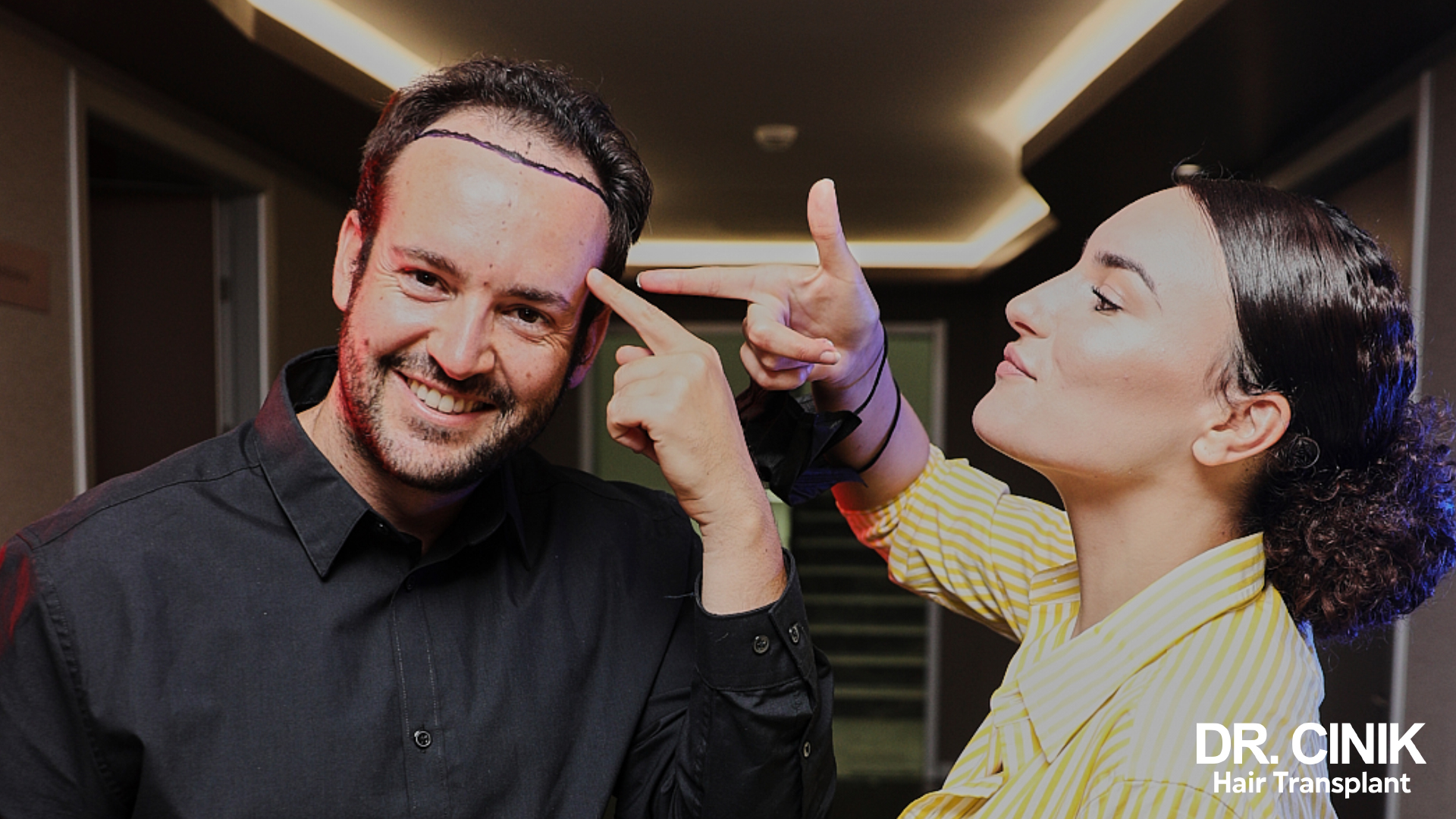
Hair Transplantation in Brief
Hair transplantation aims to restore hair density in people suffering from hair loss. It involves removing hair follicles from an area of the scalp where the hair is denser, typically at the back of the head, and transplanting them into balding or thinning areas.
Hair transplants can effectively treat two types of alopecia in particular: androgenetic alopecia and scarring alopecia.
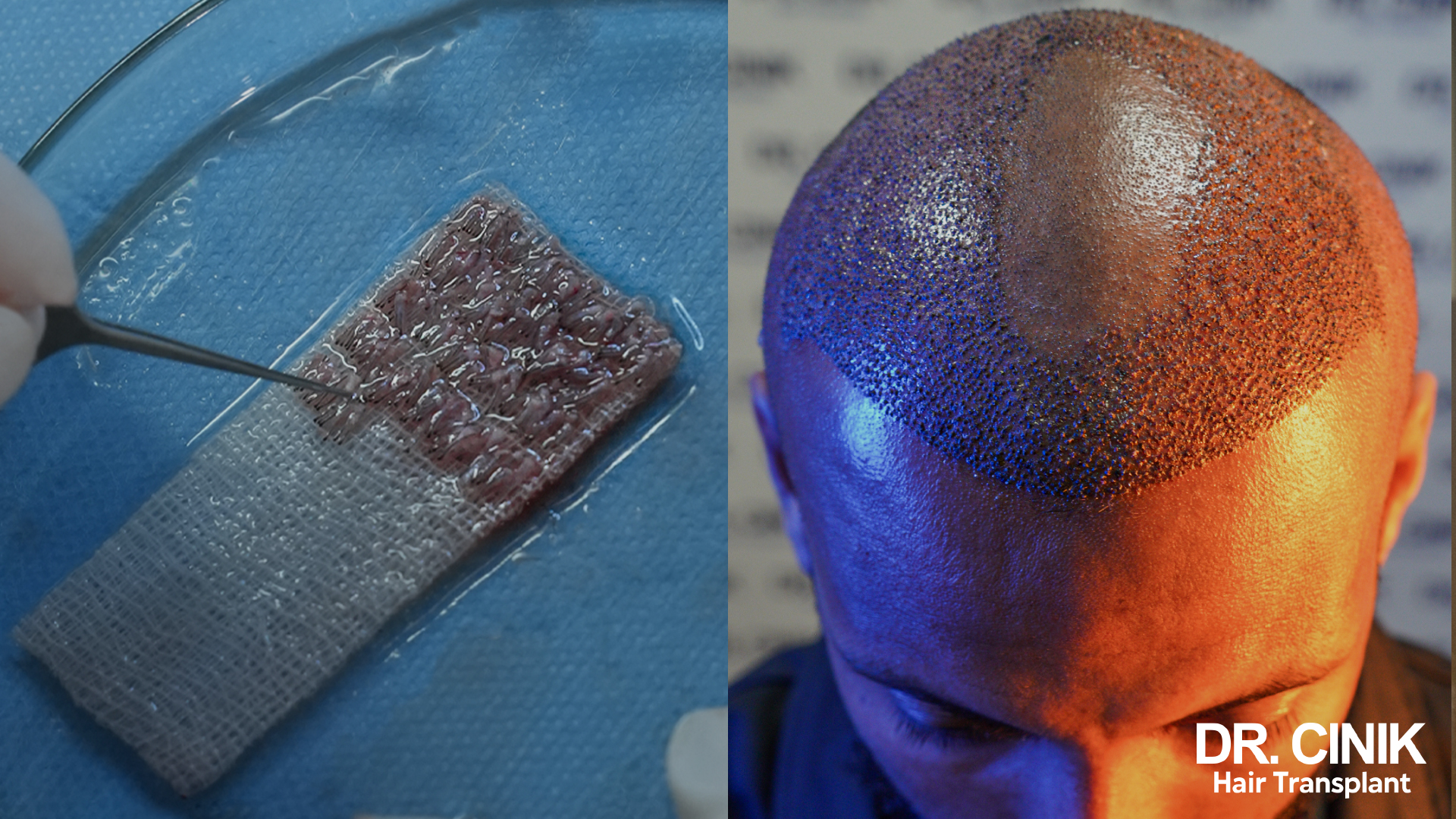
Why Consider a Hair Transplant Abroad?
Hair transplants abroad offer several significant advantages. The first is undoubtedly the price. Countries such as Tunisia and Turkey, which are very popular for this type of operation, charge much lower prices than European countries. Importantly, this price difference does not compromise the quality of care. Moreover, the quoted price often includes a full range of services, from the operation itself to the stay in the country and post-operative care.
The second advantage lies in the expertise of the surgeons. Certain foreign destinations, such as Turkey, enjoy a solid reputation for excellence in hair transplants. Practitioners there are recognised as leading specialists with considerable experience. This guarantees professionalism and quality for patients.
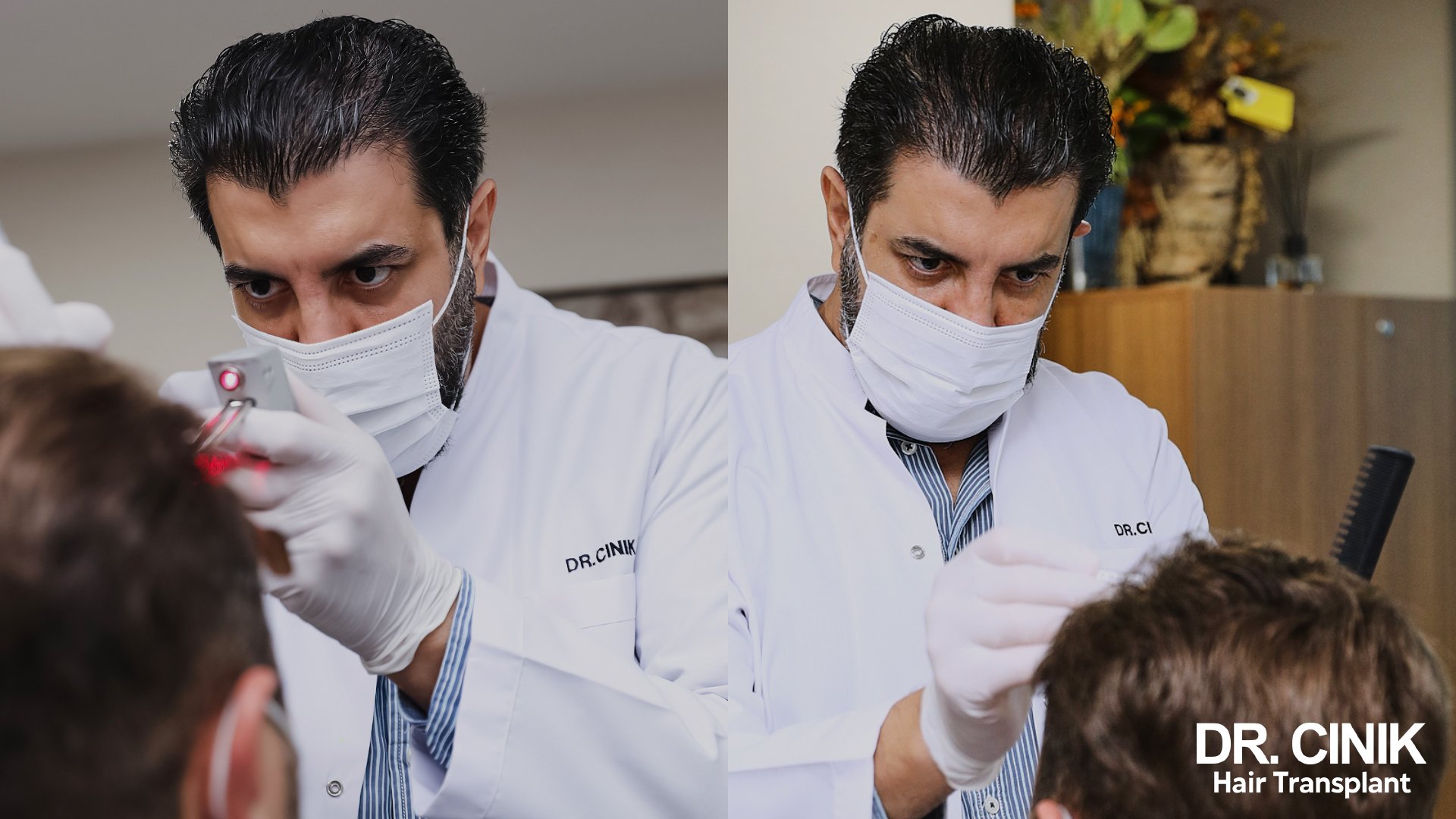
Finally, the simplicity of post-operative care is another major advantage. Foreign clinics generally offer comprehensive support, from the operation right through to post-transplant care, with even the possibility of remote follow-up after returning home. This all-inclusive approach allows patients to undergo the experience with peace of mind and focus on their recovery without any additional concerns.
Turkey and Tunisia Put to the Test for Hair Transplants
Comparative Overview
Turkey: The World Leader in Hair Tourism
Turkey has become one of the world’s leading destinations for hair transplants. This success can be attributed to several key factors.
Firstly, the country enjoys an excellent reputation in this field. Its expertise is internationally recognised, attracting patients from all corners of the globe.
This reputation is closely linked to the expertise of Turkish surgeons. They are true pioneers in their speciality, mastering the most advanced hair transplant techniques and technologies. Their high level of skill is a guarantee of quality for the patients who entrust them with their hair restoration.
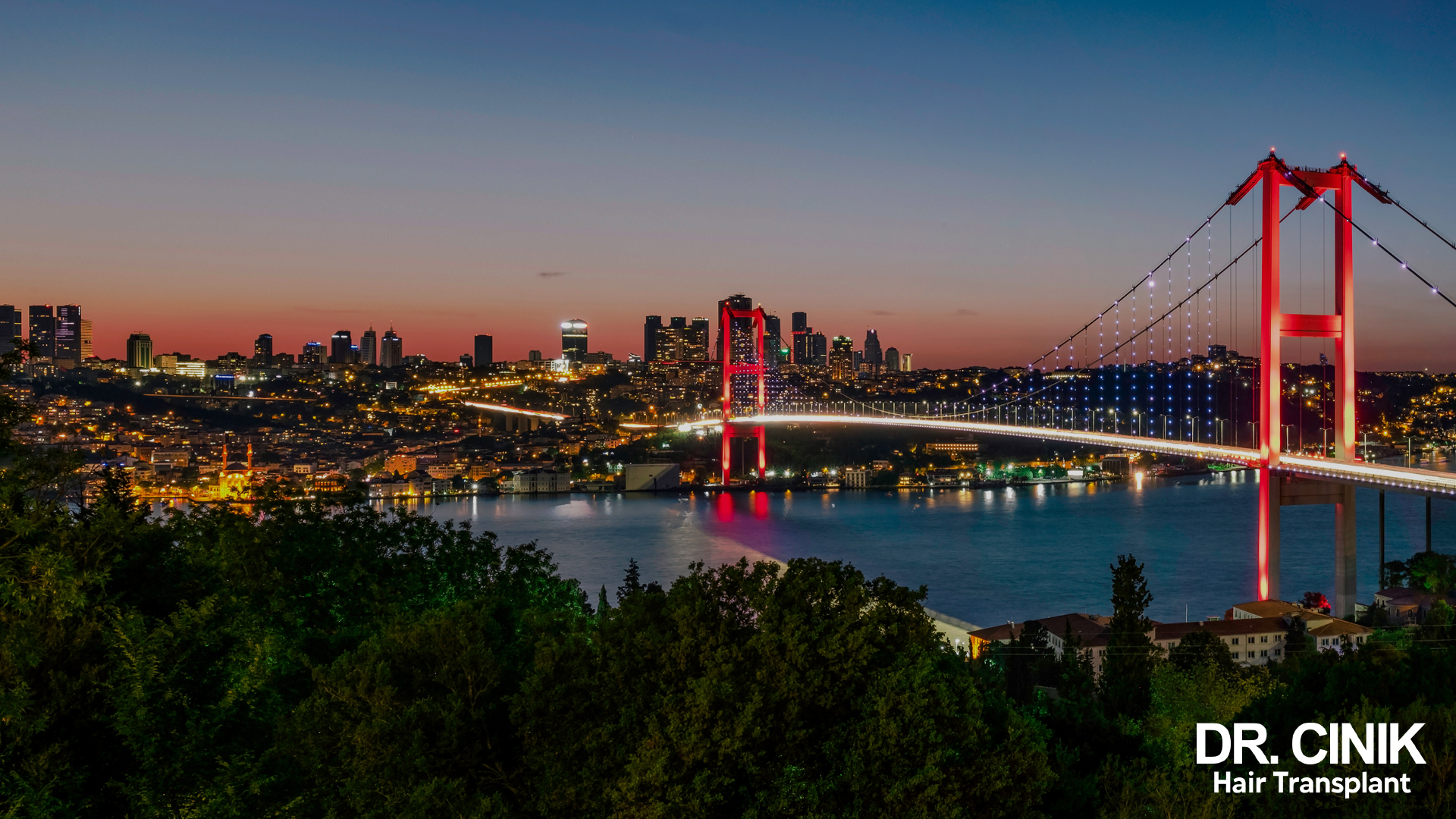
Another major advantage is the competitiveness of the prices charged in Turkey. Without compromising on the quality of care, the country offers prices that are much more affordable than those observed in other parts of the world. This affordability allows more patients to confidently pursue hair transplants.
It is important to note that these attractive rates generally include a comprehensive package of services. In addition to the operation itself, the packages offered often cover post-operative care as well as the patient’s stay in the hospital. This all-inclusive care is a significant benefit for patients, who can focus on their recovery without worrying about logistical aspects.
Tunisia: The Cost-Effective Option for Cosmetic Surgery
Tunisia has become increasingly popular in recent years as a destination for cosmetic procedures, particularly hair transplants. One of the country’s main attractions is that its costs are among the most affordable on the market. For patients on a limited budget, this affordability can be a compelling factor in choosing a destination.
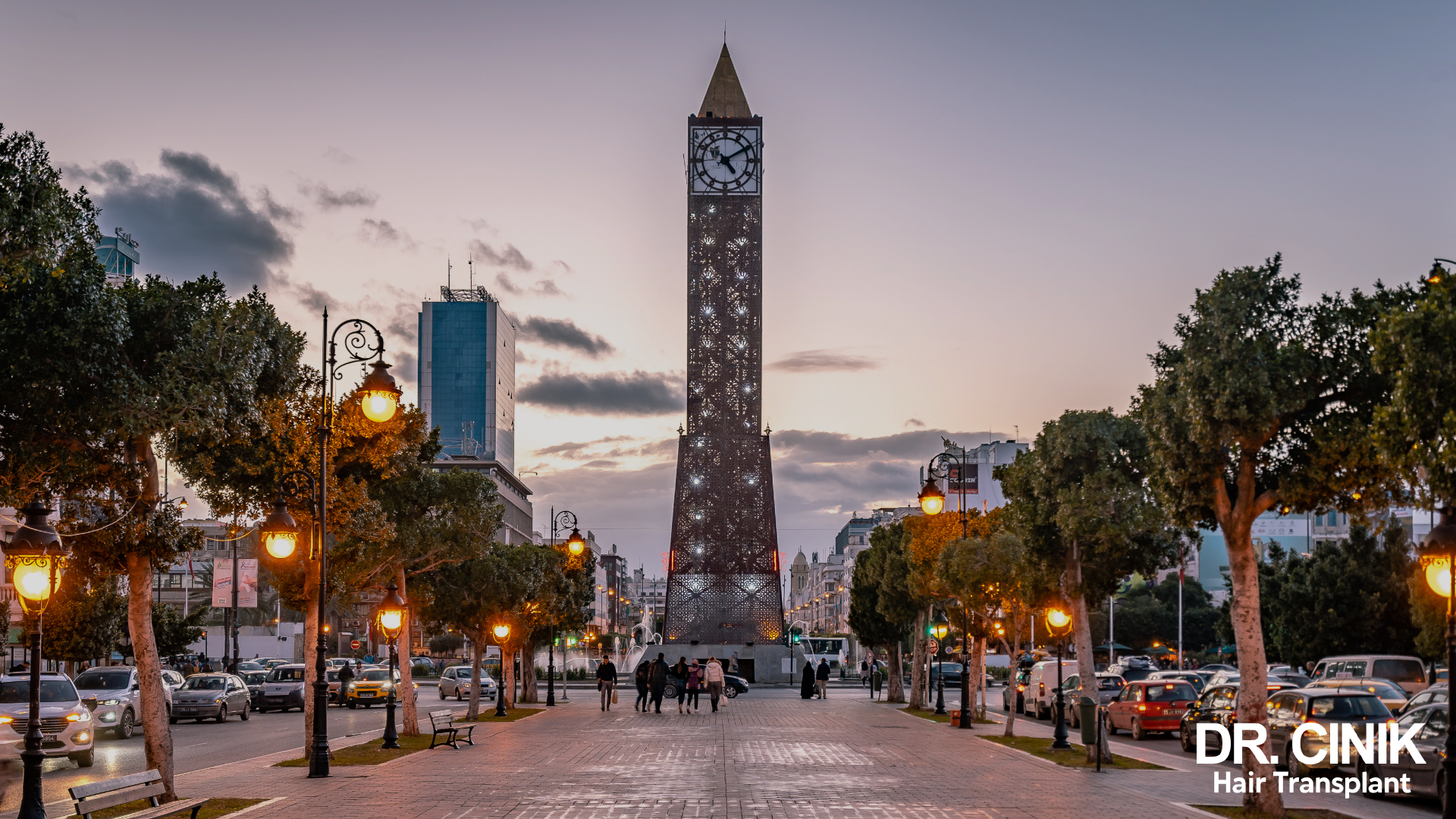
However, while Tunisia offers high-quality services, its expertise in hair transplants is not as well-established as that of Turkey. Tunisian surgeons, although competent and experienced, have yet to acquire the same international renown as their Turkish colleagues, who remain the benchmark in this specific field.
Despite this difference, Tunisia remains an attractive option for those looking to combine quality care with cost control. Tunisian practitioners can deliver good results in hair transplants, enabling patients to regain a fuller head of hair at a reasonable price.
The Cost of a Hair Transplant in Tunisia vs Turkey
Turkey: All-Inclusive Packages Billed by Time Spent, Not by Graft, with the Most Advanced Techniques
In Turkey, clinics often offer all-inclusive packages, which are charged according to the time spent rather than the number of grafts implanted. These packages include the most advanced techniques.
For example, a basic package using the FUE technique with PRP (Platelet-Rich Plasma) treatment starts at around £2,000 for unlimited grafts.
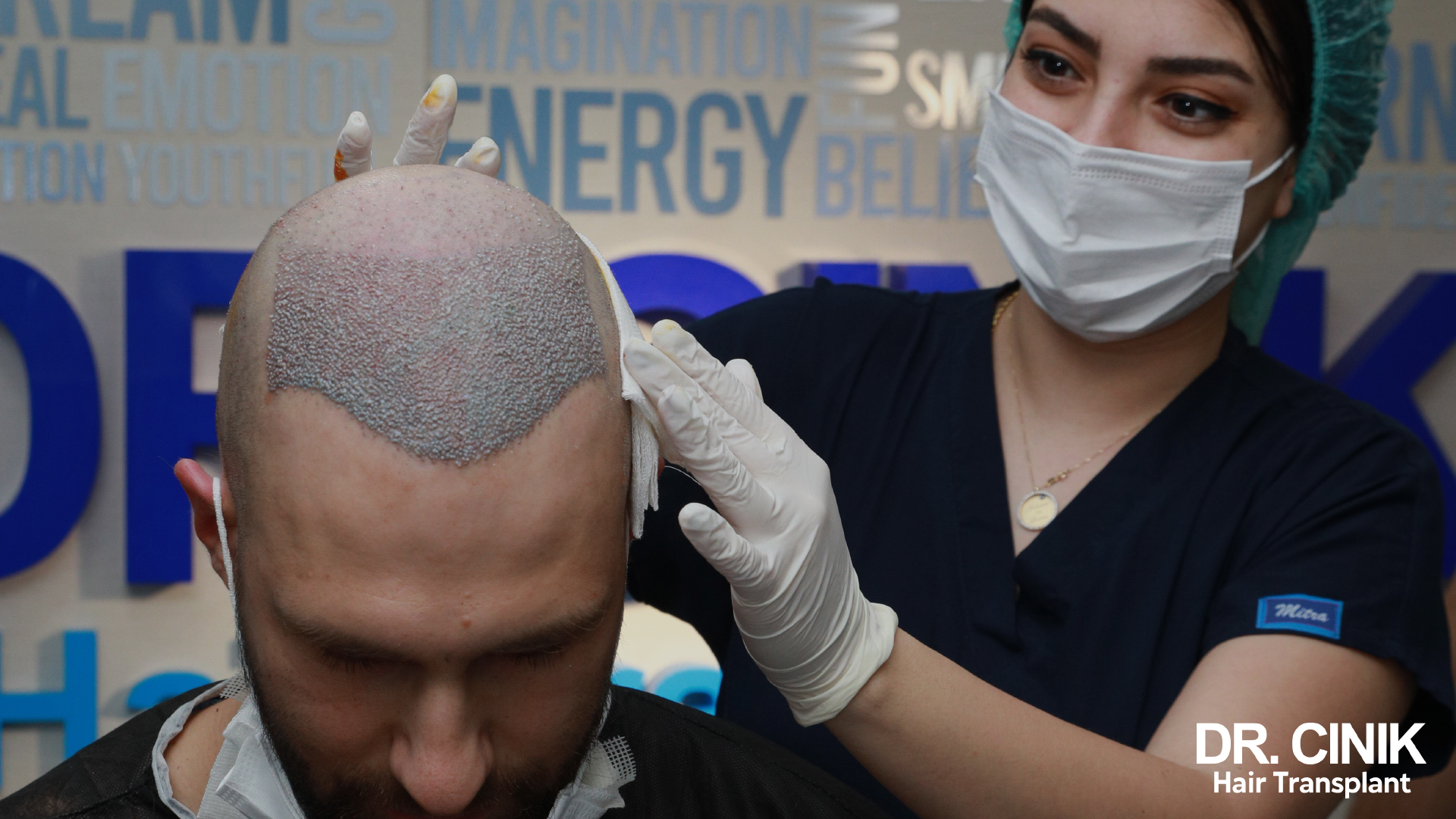
The more advanced FUE technique with manual extraction and implantation using a Sapphire blade costs around £3,200.
With Dr Cinik, packages systematically include post-transplant PRP treatment to promote rapid healing and stimulate regrowth.
Tunisia: Transplants Charged per Graft, Generally More Expensive with Less Advanced Techniques
In Tunisia, hair transplant costs are generally calculated per graft, with an average rate of £1.2 per graft.
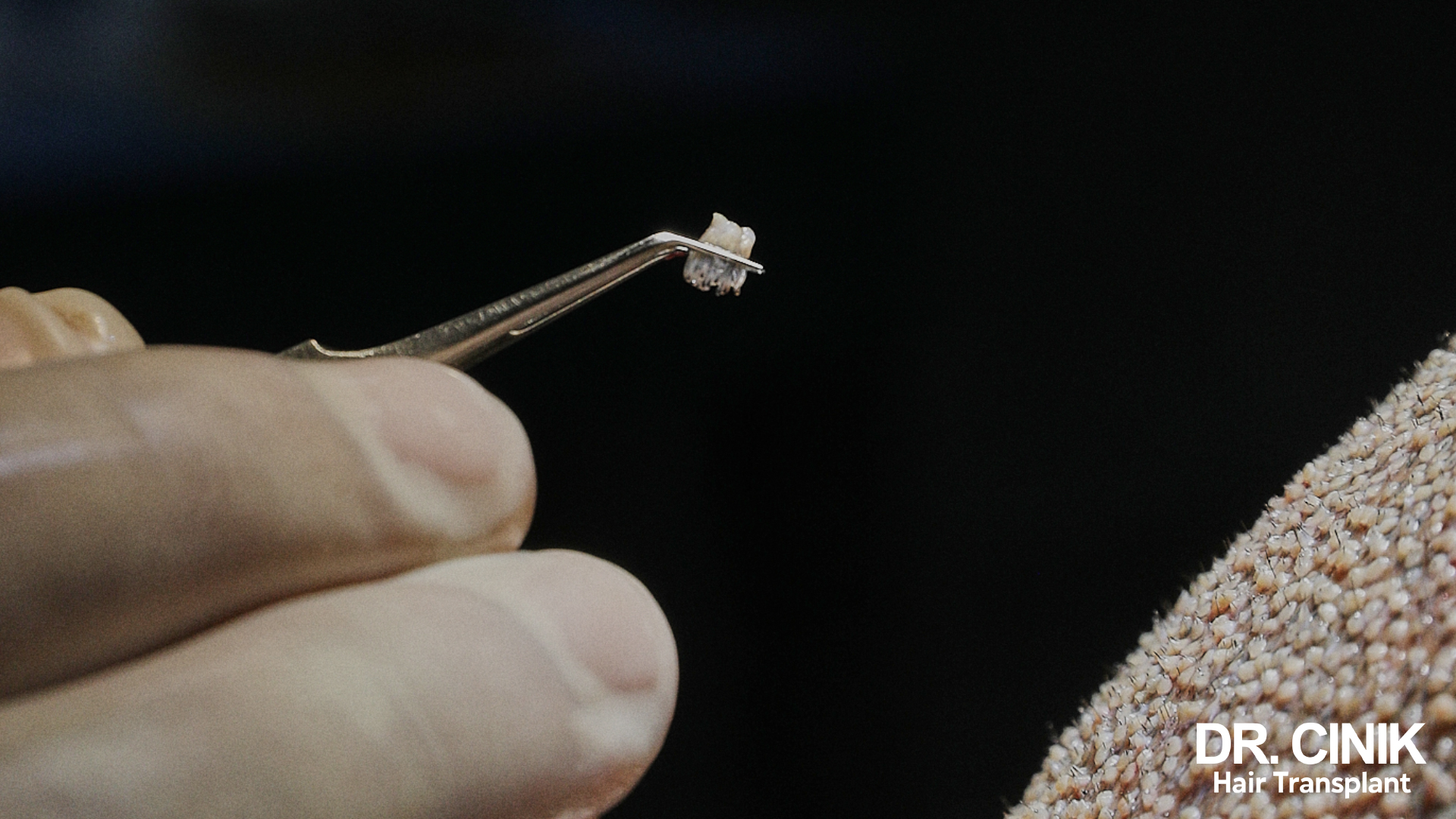
Although the introductory prices may seem lower, they often correspond to a smaller number of grafts. The techniques used in Tunisia are less advanced than those offered in Turkey.
Thus, the total cost in Tunisia could be higher for an equivalent number of grafts, making Turkey more advantageous financially for larger operations or those requiring more sophisticated techniques.
The Infrastructure on Offer in Tunisia vs Turkey
In Turkey: Modern Infrastructure and a Legal Framework that Protects Patients
Turkey has 30 years of experience in medical tourism. This has led to the development of cutting-edge medical infrastructure. Turkish clinics and hospitals are equipped with state-of-the-art equipment, enabling surgeons to work in optimal conditions.
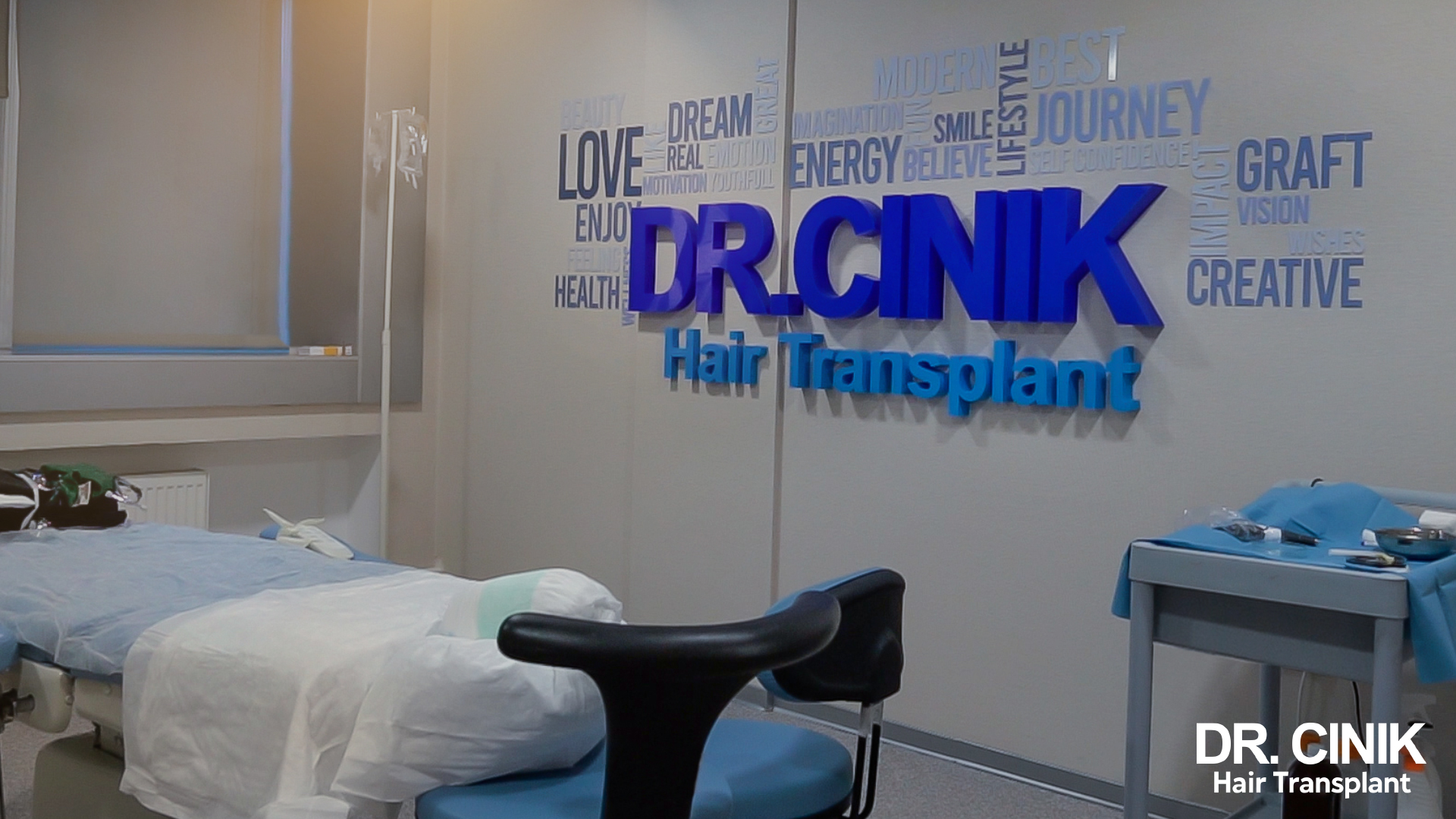
The rise of the Turkish medical sector is partly the result of a proactive government policy. The authorities have set up a system of grants to support surgeons and clinics. These financial incentives have made it possible to fund the development of infrastructure and the training of practitioners.
In return for this support, healthcare establishments are subject to rigorous controls and must comply with a strict legislative framework. These stringent regulations are a guarantee of professionalism and quality for patients. They ensure a high level of protection and care, from the pre-operative consultation through to post-operative follow-up.
This combination of state-of-the-art infrastructure, experienced surgeons, and rigorous legal supervision makes Turkey a particularly attractive destination for hair transplants. As a result, patients can benefit from top-quality care, delivered under optimal safety conditions.
In Tunisia: Decent Infrastructure, but a Vague Legislative Framework
Clinic quality is generally satisfactory in Tunisia. Health establishments are required to register with the Ministry of Health. However, the legislative framework governing cosmetic surgery in Tunisia is less developed and protective than in Turkey. While Tunisian laws provide a general framework for medical practice, they are not as specific and restrictive for cosmetic surgery procedures. This relative regulatory flexibility can sometimes lead to disparities in quality and safety standards between clinics.
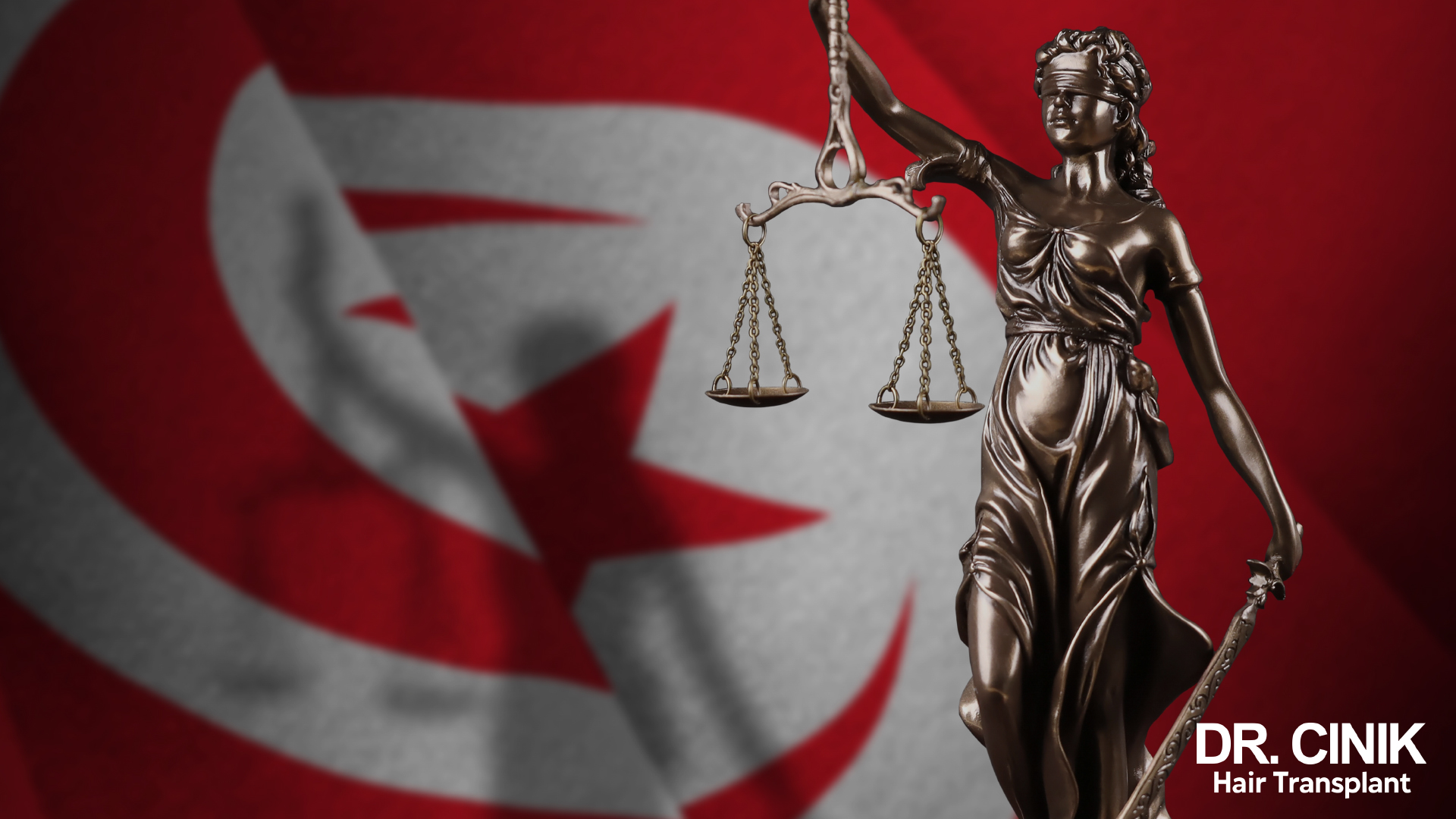
Many Tunisian clinics have taken the initiative to obtain specific insurance policies to compensate for this weakness in the legal framework. These insurance policies are designed to compensate patients for complications or unsatisfactory results. However, the absence of a legislative framework as rigorous as that in Turkey means that patients need to be extra vigilant. It is essential to thoroughly research clinics and surgeons, particularly their experience, qualifications, and reputation. It is also crucial to understand the terms and conditions of the insurance policies, ensuring that they adequately cover any complications.
The Quality of Surgeons
In Turkey: World-Renowned Expertise in Hair Transplants
Turkey has built up a solid reputation for excellence in the field of hair transplants. This reputation is largely based on the considerable experience accumulated by Turkish surgeons. Thanks to the large volume of procedures carried out each year, these practitioners have been able to refine their mastery of grafting techniques and perfect their skills.

In addition to their experience, Turkish practitioners are also recognised for their mastery of the most advanced hair transplant technologies. They constantly keep abreast of the latest innovations and do not hesitate to incorporate them into their practice. This technological expertise enables them to offer their patients the most effective and least invasive techniques, optimising results and reducing recovery time.
In Tunisia: Skilled Plastic Surgeons Trained at Reputable French or Tunisian Universities
Tunisia is also home to several skilled cosmetic surgeons. Many of them have benefited from high-quality training at Tunisian or French universities. As a result, they have solid foundational skills in plastic surgery and can carry out a wide range of procedures.
However, Tunisia does not yet benefit from the same degree of specialisation in the specific field of hair transplantation as Turkey. While Tunisia can boast talented and experienced surgeons, its practice is often more generalist. It does not necessarily have the same volume of cases specifically related to hair transplants as its Turkish colleagues.

This difference can partly be explained by the fact that Tunisia has positioned itself more recently in the medical tourism market for hair transplants. The country still needs to develop the same specialised ecosystem as Turkey, with its many dedicated clinics and ultra-specialised surgeons.
This does not mean, however, that Tunisian surgeons cannot perform quality hair transplants. Many of them have a very strong foundation in surgery and are able to achieve satisfactory results.
Techniques Offered in Tunisia vs Turkey
In Turkey: The Most Advanced Hair Transplant Techniques
Turkey stands out for its adoption of the most advanced hair transplant techniques. Turkish surgeons have incorporated innovative methods such as Sapphire FUE and DHI (Direct Hair Implantation), often combined with approaches from hair medicine to optimise results.
The Sapphire FUE technique uses a sapphire blade to make extremely fine and precise incisions. This method reduces the amount of trauma inflicted on the scalp, encouraging faster recovery and minimising the risk of visible scarring.
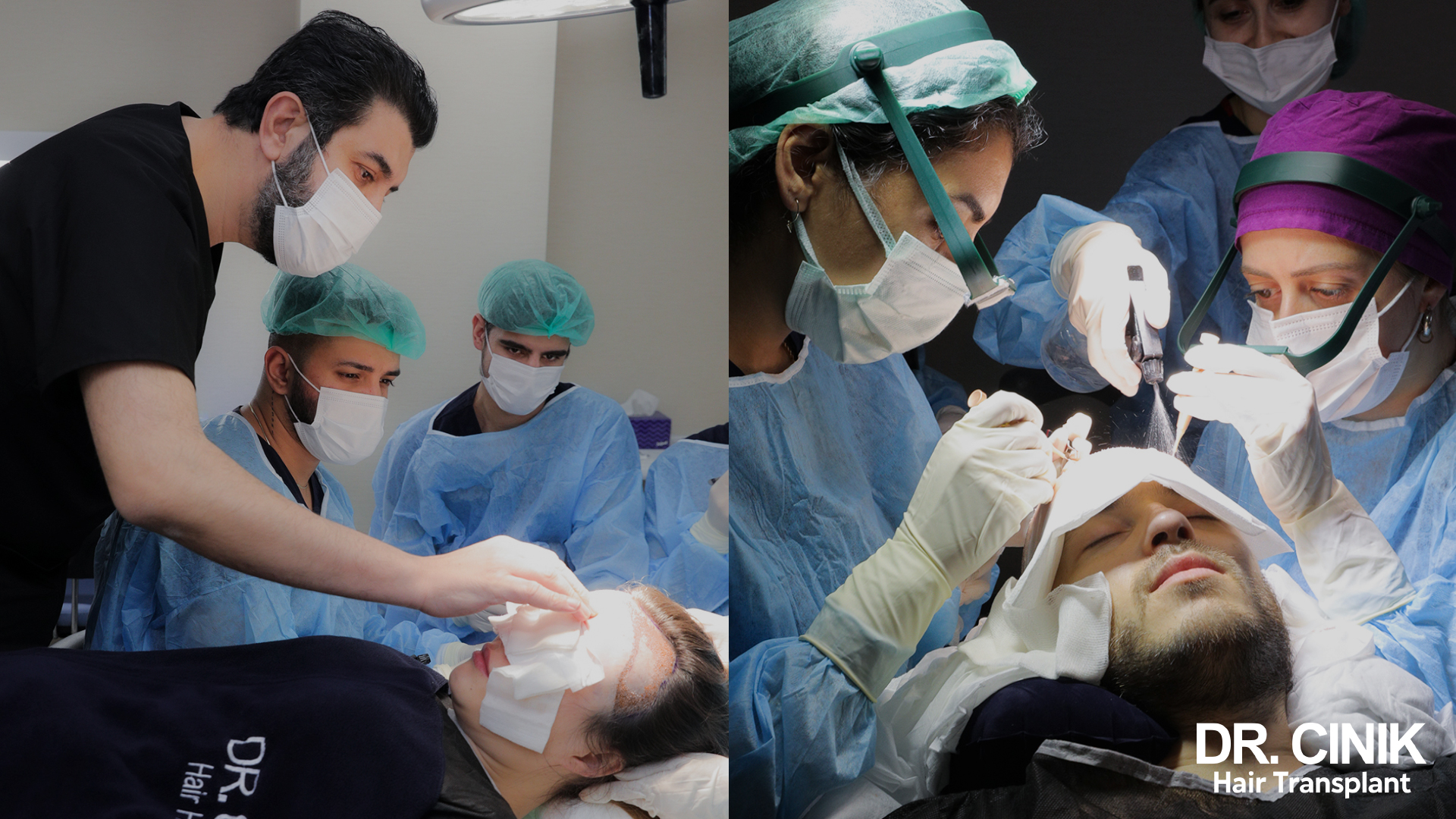
DHI gives surgeons greater control over the hair follicle implantation process. By allowing direct graft insertion, this technique enables precise control of the density and direction of hair growth, guaranteeing the most natural results.
Thanks to these cutting-edge methods, patients benefit from particularly aesthetic results, with optimised hair density and reduced recovery time. Turkey is also at the forefront of research into hair transplants, enabling its practitioners to stay up-to-date with the latest innovations.
In Tunisia: More Traditional Techniques
In Tunisia, the hair transplant techniques used are often more traditional. Many clinics use ARTAS robot implanters, a robotic technology dedicated to hair transplantation. While this approach can provide a degree of precision in extracting grafts, it is sometimes criticised for producing less natural results compared with manual transplants carried out by experienced surgeons. Moreover, these robotic techniques are often accompanied by a charge per graft.
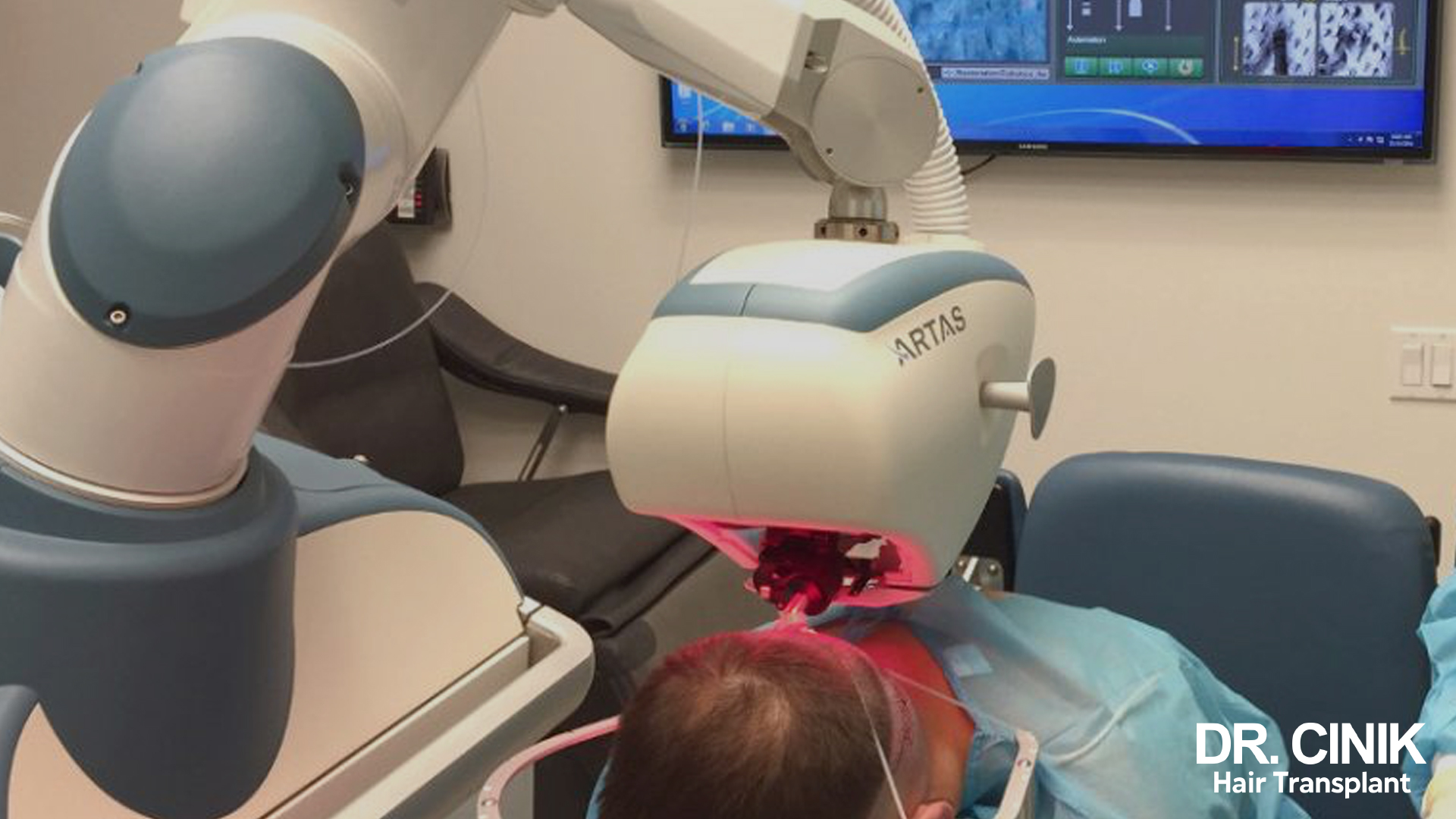
In addition, the FUT (Follicular Unit Transplantation) technique is still practised by some Tunisian surgeons. This method involves removing a strip of scalp from the donor area, which can leave a visible linear scar. Because of its invasive nature and the marks it can cause, FUT is generally not recommended in favour of more modern, less traumatic techniques.
Summary: Turkey vs Tunisia for Hair Transplants
Tunisia offers several advantages for patients considering a hair transplant abroad. In particular, the country is more affordable than other destinations while offering high-quality care. Moreover, Tunisian surgeons are constantly improving their skills, investing in their training and acquiring new techniques.
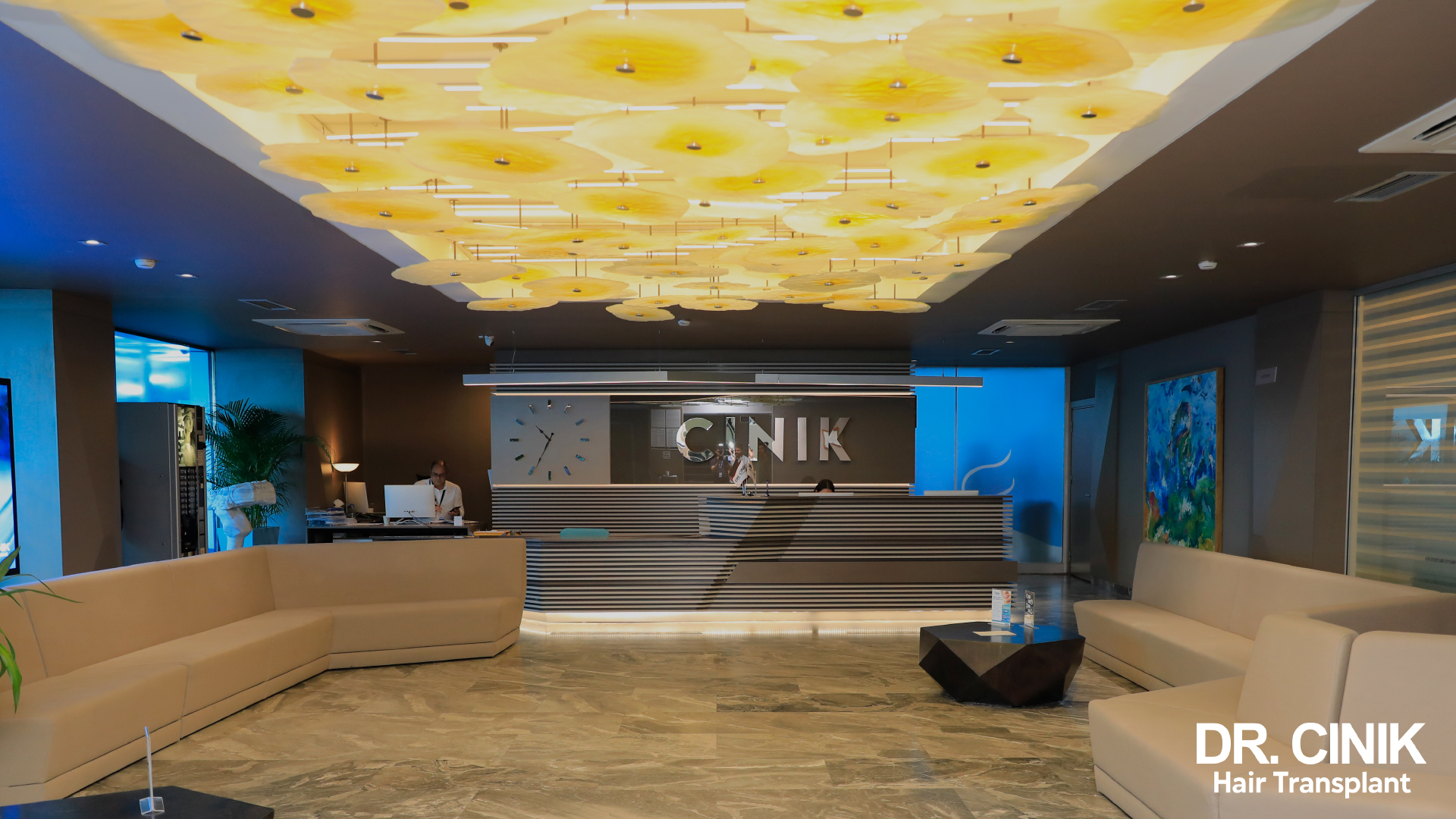
However, despite these advances, Turkey is still one step ahead and remains the benchmark destination for hair transplants. Its expertise is recognised worldwide, resulting from the considerable experience accumulated by its surgeons over the years. This expertise is coupled with the systematic use of the most advanced grafting techniques, guaranteeing optimal results in terms of naturalness and density.
More than just a surgical procedure, Turkey stands out for its holistic approach to hair transplants. Patients receive comprehensive support, including pre-and post-operative treatments designed to encourage regrowth and ensure lasting results. This holistic approach testifies to the expertise of Turkish professionals and their commitment to patient satisfaction.
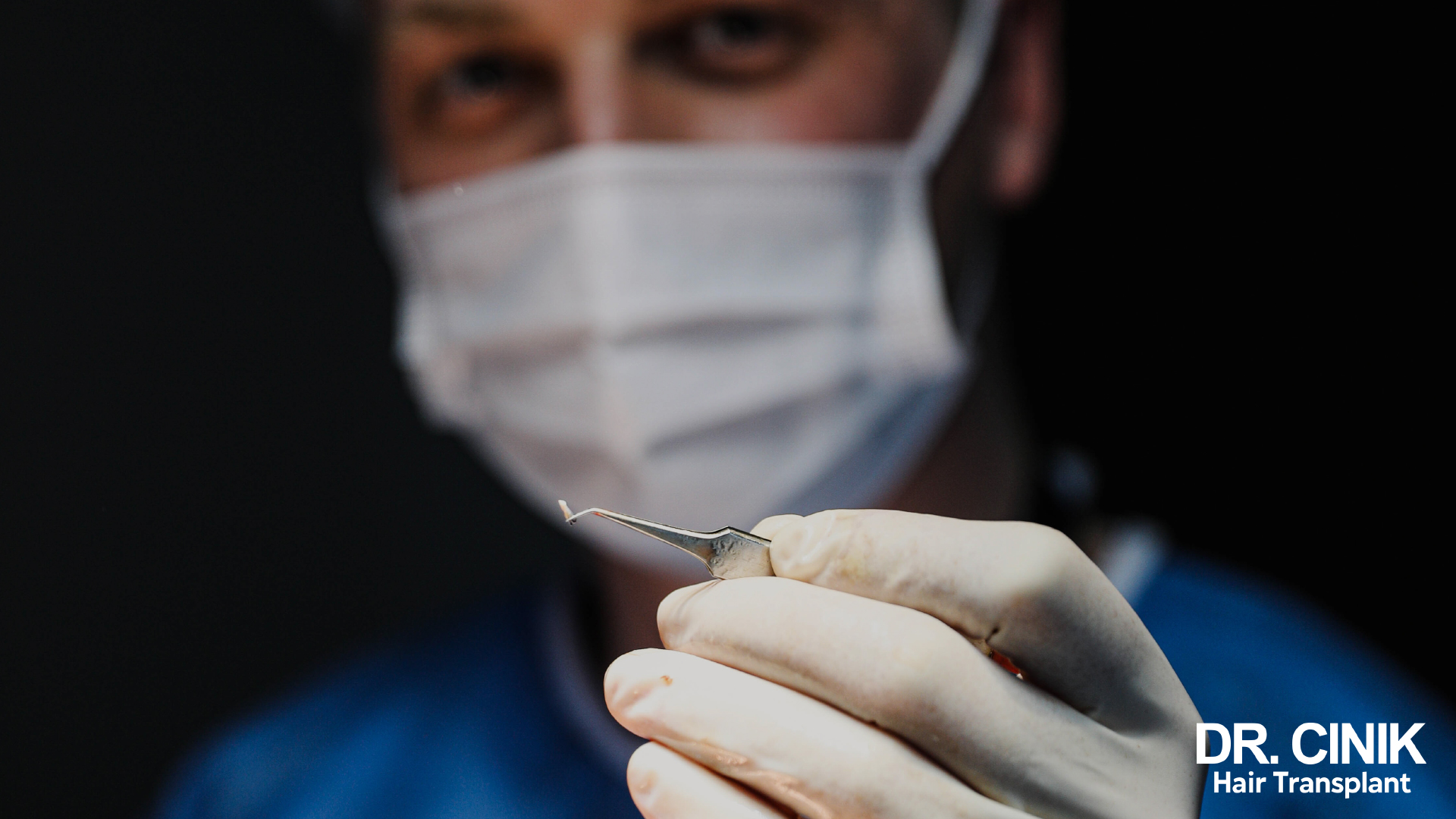
Another major advantage of Turkey is its strict legislative framework governing the practice of hair transplants. The standards imposed on clinics and surgeons are particularly rigorous, offering patients an additional safety and quality of care guarantee. Furthermore, medical infrastructure is at the cutting edge of modernity, enabling practitioners to work in optimal conditions.
Although Tunisia is making progress and establishing itself as an interesting alternative, particularly for patients on a tighter budget, Turkey remains the leader in hair tourism. Its unrivalled expertise, cutting-edge techniques, comprehensive approach, and rigorous regulatory framework make it the preferred choice for patients seeking excellence for their hair transplant.
 en
en



